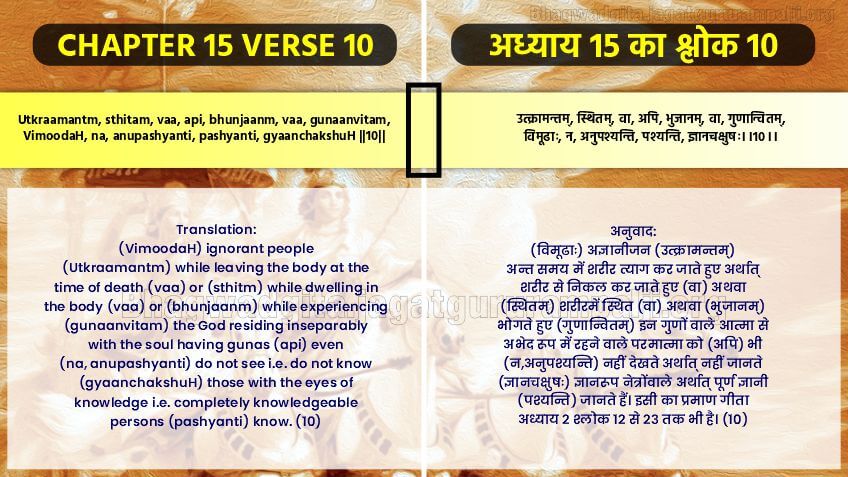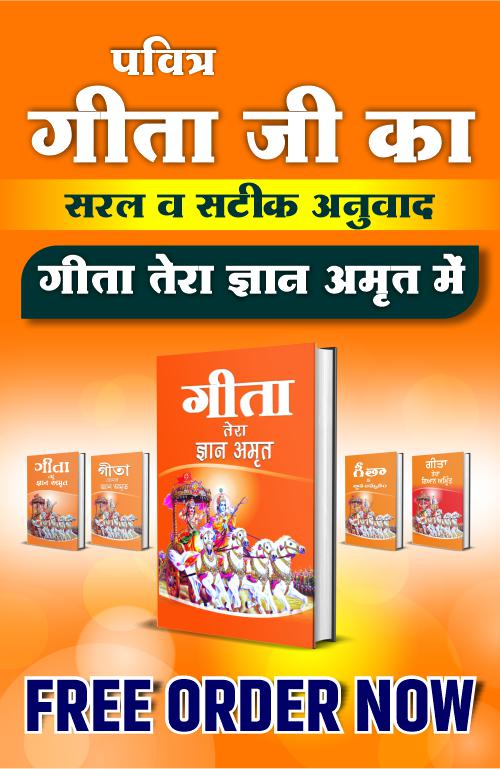
Utkraamantm, sthitam, vaa, api, bhunjaanm, vaa, gunaanvitam,
VimoodaH, na, anupashyanti, pashyanti, gyaanchakshuH ||10||
Translation: (VimoodaH) ignorant people (Utkraamantm) while leaving the body at the time of death (vaa) or (sthitm) while dwelling in the body (vaa) or (bhunjaanm) while experiencing (gunaanvitam) the God residing inseparably with the soul having gunas (api) even (na, anupashyanti) do not see i.e. do not know (gyaanchakshuH) those with the eyes of knowledge i.e. completely knowledgeable persons (pashyanti) know. (10)
Translation
Ignorant people do not even see i.e. know the God, residing inseparably with the soul who has these gunas/qualities, while leaving the body at the time of death or while dwelling in the body or while experiencing. Those who have the eyes of knowledge i.e. the completely knowledgeable persons know. Its evidence is also in Gita Adhyay 2 Shlok 12 to 23.
उत्क्रामन्तम्, स्थितम्, वा, अपि, भु×जानम्, वा, गुणान्वितम्,
विमूढाः, न, अनुपश्यन्ति, पश्यन्ति, ज्ञानचक्षुषः।।10।।
अनुवाद: (विमूढाः) अज्ञानीजन (उत्क्रामन्तम्) अन्त समय में शरीर त्याग कर जाते हुए अर्थात् शरीर से निकल कर जाते हुए (वा) अथवा (स्थितम्) शरीरमें स्थित (वा) अथवा (भु×जानम्) भोगते हुए (गुणान्वितम्) इन गुणों वाले आत्मा से अभेद रूप में रहने वाले परमात्मा को (अपि) भी (न,अनुपश्यन्ति) नहीं देखते अर्थात् नहीं जानते (ज्ञानचक्षुषः) ज्ञानरूप नेत्रोंवाले अर्थात् पूर्ण ज्ञानी (पश्यन्ति) जानते हैं। इसी का प्रमाण गीता अध्याय 2 श्लोक 12 से 23 तक भी है। (10)
